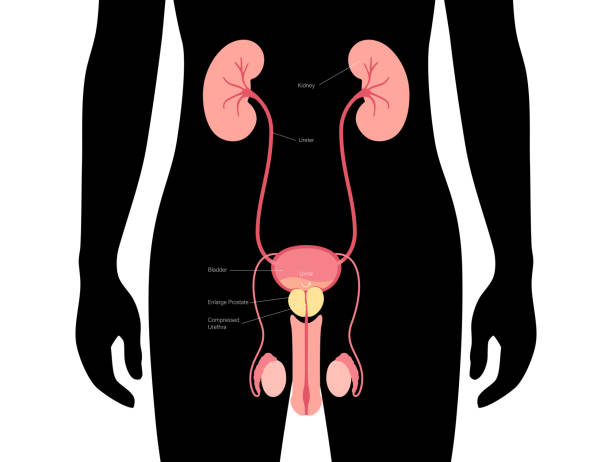Are you looking for ways to manage your BPH symptoms? If so, you’ve come to the right place! In this blog post, we’ll be exploring how to treat BPH in 5 easy steps. BPH, or Benign Prostatic Hyperplasia, is a condition that affects the prostate gland. It can cause symptoms like frequent urination, weak urine flow, and difficulty starting or stopping the flow of urine. By following the steps outlined in this post, you can learn how to treat BPH and reduce your symptoms. Let’s get started!
1) The first step is to talk to your doctor
When it comes to treating BPH, the first thing you should do is talk to your doctor. Your doctor can give you an evaluation and advise you on the best course of action for treating your BPH. They will be able to identify any underlying causes, prescribe medication or recommend lifestyle changes that could help manage the symptoms of BPH. Your doctor may also suggest additional tests to rule out other medical conditions. Knowing how to treat BPH starts with talking to your doctor.
2) The second step is to make sure you’re getting enough exercise
Exercise is an important part of treating BPH and reducing the symptoms associated with it. Regular exercise can help reduce the risk of an enlarged prostate, or adenoma prostate, by keeping your body healthy and in balance. Exercise can also improve bladder control, reduce stress and anxiety, and improve circulation. It is recommended that you get at least 30 minutes of moderate-intensity exercise every day. Examples of moderate-intensity activities include brisk walking, jogging, swimming, dancing, and biking. Strength training is also beneficial as it helps maintain muscle mass and strengthens the pelvic floor muscles which can help reduce BPH symptoms.
3) The third step is to cut down on caffeine
Caffeine is known to aggravate the symptoms of BPH and can contribute to an enlarged prostate, or adenomaprostate. Caffeine can make it more difficult for you to urinate, leading to bladder discomfort and a feeling of urgency. Therefore, it’s important to limit your intake of caffeine as much as possible. Try to avoid coffee, tea, soda, and energy drinks. If you must have some caffeine, opt for decaf coffee or tea. Cutting down on caffeine will help reduce the symptoms of BPH and may even improve the health of your prostate.
4) The fourth step is to eat more fiber
Fiber is an important part of a balanced diet for both men and women, but for men with an enlarged prostate, fiber is especially important. Eating enough fiber helps to maintain a healthy weight, which can help reduce the symptoms of BPH (benign prostatic hyperplasia). Additionally, fiber helps the body move waste out of the body more efficiently, reducing the pressure on the adenoma prostate gland and reducing symptoms.
The best way to increase your fiber intake is to focus on whole grain products such as oatmeal and brown rice, as well as foods that are rich in fiber such as nuts, seeds, and legumes. You should also try to incorporate more fruits and vegetables into your diet as they contain lots of natural fibers. Additionally, many breakfast cereals are fortified with extra fiber which can help you get your daily recommended amount. Finally, consider adding a supplement such as psyllium husk to your diet to help increase your fiber intake even further.
5) The fifth step is to take supplements
Supplementing your diet with certain vitamins and minerals can help reduce symptoms associated with an enlarged prostate, also known as adenomaprostate. A supplement such as zinc has been found to reduce symptoms associated with benign prostatic hyperplasia (BPH). Zinc has been found to inhibit the activity of 5-alpha-reductase, which is an enzyme responsible for the growth of the prostate. Other supplements that have been linked to reducing BPH symptoms include vitamin D, lycopene, saw palmetto, and selenium. Additionally, omega-3 fatty acids have been found to reduce inflammation and therefore may be beneficial in treating BPH. It is important to talk to your doctor before taking any supplements as they may interact with medications you are already taking.

